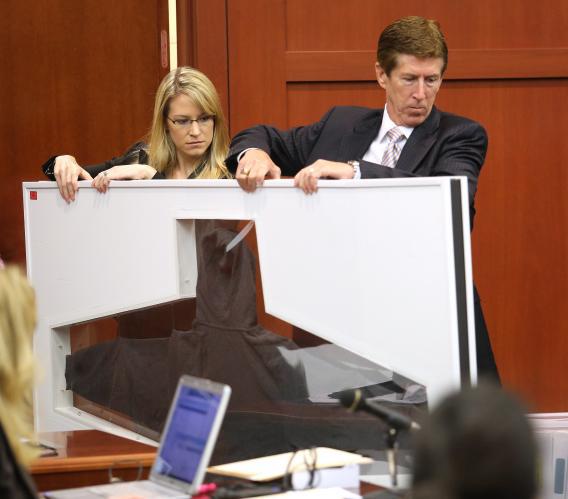My new piece explains the origins of the best kind of scandal—the one where people interpret public record facts as proof of something darker and unknown. The Community Relations Service, a $12 million bureau of the Department of Justice, shuttles into situations where there might come a racial contretemps. It arrived in Sanford and Miami as the Trayvon Martin protests started to build.
This, according to conservatives who’ve FOIA’d the bills from the CRS’s work, is evidence a rogue DOJ “race-baiting” in order to break the justice system.
Right now the most dedicated critic in what Stranahan calls “Trayvongate” is J. Christian Adams. In 2005 Adams was hired by the Bush administration’s Department of Justice. In 2008 Adams built the DOJ’s case against the very black supremacist, very fringe New Black Panther Party, after two of its members had skulked outside a polling place brandishing nightsticks. (One signal of their strategic intelligence: The polling place they chose was overwhelmingly black and Democratic.) When the Obama administration didn’t pursue the case, Adams quit and started writing and speaking about the racial “politicization” of Eric Holder’s Justice Department.
“One might ponder why the Justice Department Civil Rights Division rushed to Florida in the first place and took sides once the racial furnace was sufficiently stoked,” Adams wrote last month, before the Judicial Watch release. “When Eric Holder’s old pal from D.C. (and a Philadelphia court case), New Black Panther chieftain Malik Zulu Shabazz, called for a 10,000 strong black-male mob to seize George Zimmerman, we knew what was in store.”
The figure at the center of the outrage, the lyrically named Jessica Chasmar, reports on another Judicial Watch find, a tape from a church meeting that the CRS’s Tom Battles spoke to. The damning quotes:
We had grown up in a state and environment where race is a way of life … We’re not from Sanford, but what Sanford represented to us was the very real problems going around this state and this country. We wanted to figure out how could we stand in solidarity, and how could we make this about not just justice for Trayvon, but using this moment and using the opportunity to honor his memory, to honor his spirit by working to bring down the various structures and the various systems that allow something like this to happen.
If you disagree with the sentiment, you think the DOJ has given in to racism.
